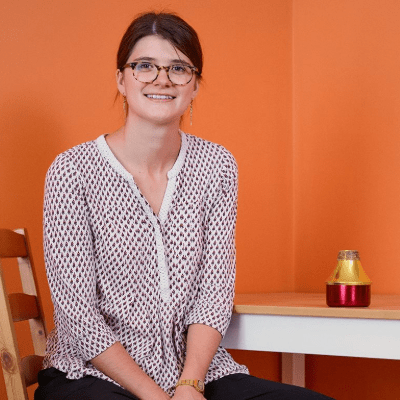Laura Jurd

Composer-performer Laura Jurd’s unique voice as an improvising trumpet player is at the heart of everything she creates. Her music celebrates and innovates the rich traditions of jazz and folk music, digging into something primal and earthy, whilst taking twists and turns that prove Laura to be one of the UK’s most distinctive composer-performers in contemporary music.
As a composer she has collaborated with the London Sinfonietta, the Festival of New Trumpet Music, the National Youth Orchestra of Great Britain and the Ligeti Quartet to name a few. She has performed throughout the UK, Europe and beyond with Mercury-nominated band Dinosaur and under-her own name, having played the likes of North Sea, Montréal and Molde International Jazz festivals to name a few.
‘Jurd seems unconcerned by transient fashions or enrolment in any kind of scene, and pursues a private muse that draws on jazz, folk traditions from Europe and the Middle East, and the harmonic language of Stravinsky, yet her work is always spiritedly accessible, and often suggests wordless songs’ (John Fordham, The Guardian).
Composer-performer Laura Jurd’s unique voice as an improvising trumpet player is at the heart of everything she creates. Her music celebrates and innovates the rich traditions of jazz and folk music, digging into something primal and earthy, whilst taking twists and turns that prove Laura to be one of the UK’s most distinctive composer-performers in contemporary music.
As a composer she has collaborated with the London Sinfonietta, the Festival of New Trumpet Music, the National Youth Orchestra of Great Britain and the Ligeti Quartet to name a few. She has performed throughout the UK, Europe and beyond with Mercury-nominated band Dinosaur and under-her own name, having played the likes of North Sea, Montréal and Molde International Jazz festivals to name a few.
‘Jurd seems unconcerned by transient fashions or enrolment in any kind of scene, and pursues a private muse that draws on jazz, folk traditions from Europe and the Middle East, and the harmonic language of Stravinsky, yet her work is always spiritedly accessible, and often suggests wordless songs’ (John Fordham, The Guardian).
Compilations with this composer
CompilationsExternal Links
Music Map
Discover more about the classical music of today with NMC's Music Map, and exciting and educational online tool which enables you to see and hear the connections between composers, their teachers, pupils, influences and their works.
Music Map
